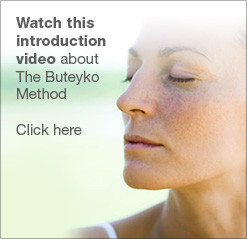A Doctor is testing a controversial treatment for asthma on two of his patients.
Dr Gerald Spence, a Glasgow GP, is examining the so-called Buteyko method to see if it can reduce the need for asthma drugs which account for 19 per cent of spending at his practice in the East End. Dr Spence saw the method being demonstrated on sufferers in Glasgow who were charged Pounds 295 each to learn the technique.
The Buteyko practitioners, Alexander Stalmatski and Christopher Drake, who are holding courses for sufferers around Britain, claim that asthmatics can control their illness and reduce the amount of medication they take by learning to hold their breath. They say that asthma attacks are brought on by hyperventilation, or too much deep breathing, and symptoms can be reduced by shallow breathing.
Both men, who are based at the Hale Clinic in London, gave a five-day course in Glasgow in September. Since then, virtually every member of a group of 25 people studied after the course has reported a major improvement in their condition.
Dr Spence, who is based at the Shettleston Health Centre, says that one of his patients, a man, has reported a dramatic improvement. The other patient, a girl, has shown some improvement.
The Buteyko method, named after a Russian professor, Konstantin Buteyko, has been criticised by members of the medical profession and the National Asthma Campaign, who say it cannot cure asthma. Doctors are also concerned that sufferers may face serious problems if they stop taking their medication after learning the technique.
Dr Michael Smith, who writes the medical column ‘Up Stethoscope’ in The Scotsman, has also criticised Christopher Drake’s course and his ‘lucrative’ course fee. Dr Smith said recently that there was some theoretical support for high levels of carbon dioxide to help to widen the airways, but added ‘the rest is (I speak politely) highly suspect.’
Tonight, however, people who took part in the Glasgow course will speak on television about the benefits they felt they got from the Buteyko method. In BBC Scotland’s Frontline Scotland report at 9:30pm, Donna Esslemont, 13, from Eaglesham, says she can go out with her friends more often after learning the breath-holding technique.
‘I sleep with a tape over my mouth to keep it closed and at school I take 112 steps while holding my breath. Before, I could only go 20 steps, but I feel so much better now,’ Donna said.
Anne Kemp, 77, a widow from Milngavie, said she used inhalers frequently and had trouble climbing the hill from the shops to her home until she learned the Buteyko method. ‘I can manage the hill much better now and I feel no need to take the inhaler with me.’
Mrs Kemp said her daughter, who lives in Australia, says the technique is more commonly accepted there.
Dr Spence said that although he was guarded about the Buteyko method he was not dismissing it.
‘I don’t think its practitioners (Stalmatski and Drake) are great ambassadors because their courses are pretty chaotic, but I do think they have got something there,’ he said.
‘It could be argued that people who pay Pounds 295 for a course would say they got something from it, but it does seem to give some improvement. There seems to be an inexorable rise in the cost of asthma drugs to the health service and anything that reduces that must be welcomed.’
Dr Spence said he hoped to introduce Buteyko-style treatment on a wider basis at Shettleston, but only after he was convinced that people already using the method were showing long-term benefits. He said the technique should not be tried by asthma sufferers without proper instruction.
